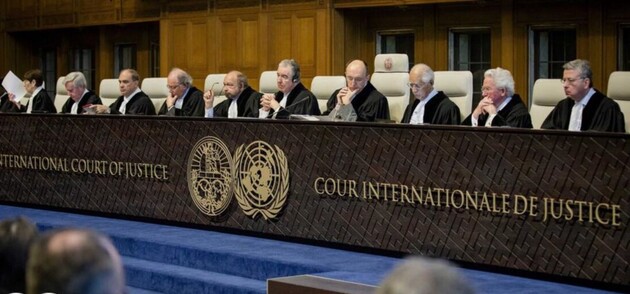The sixth month of full-scale aggression is coming to an end. And in addition to the demand for victory, another demand is becoming more and more noticeable in society - the demand for justice. We do not know when the active phase of hostilities will end, but it is clear that the demand for justice will accompany Ukrainian society for decades. At the same time, the trials of the Russian military that we have seen so far raise many questions in society. In our case, justice means punishing the maximum number of perpetrators for all serious crimes committed on the territory of Ukraine over the past eight years: from the political elite of Russia and Belarus to the soldier who carried out criminal orders.
But how can this request be met? The number of war crimes and crimes of aggression registered by the justice system since 24 February alone is already approaching 30,000. It is obvious that the national justice system will not be able to cope with this scale.
In my opinion, a hybrid justice mechanism is a worthy response to this challenge.
A hybrid justice mechanism combines national and international elements at several levels: investigation, prosecutorial supervision, and court practice. This has obvious advantages: transfer of experience, increased confidence in investigations, and a chance for Ukraine not only to punish those responsible for international crimes, but also to build an effective justice system.
Why is it important now?
- The involvement of the Russian Federation in the conflict in Ukraine is now undeniable.
What was the problem before? It was obvious to most Ukrainians that Russia's armed aggression against Ukraine has been going on since 2014. However, until 24 February, the Russian Federation pursued a deliberate policy of imitating the subjectivity of the ORDLO territories, trying to convince the world that the conflict in Ukraine was not international. And, accordingly, that Russia is not a party to the conflict. And even the occupation of Crimea was not perceived as a classic aggression in the minds of many people, because there was no fighting over the peninsula, as was the case, for example, in Donetsk and Luhansk regions. Therefore, Ukraine had to concentrate on proving that it was Russia that exercised effective control over the quasi-entities and that the conflict was international in nature.
And since the full-scale invasion, when the issue of proving the international nature of the conflict is no longer so acute (at least no one will deny Russia's participation as a party to the conflict), we can focus on building a hybrid mechanism.



